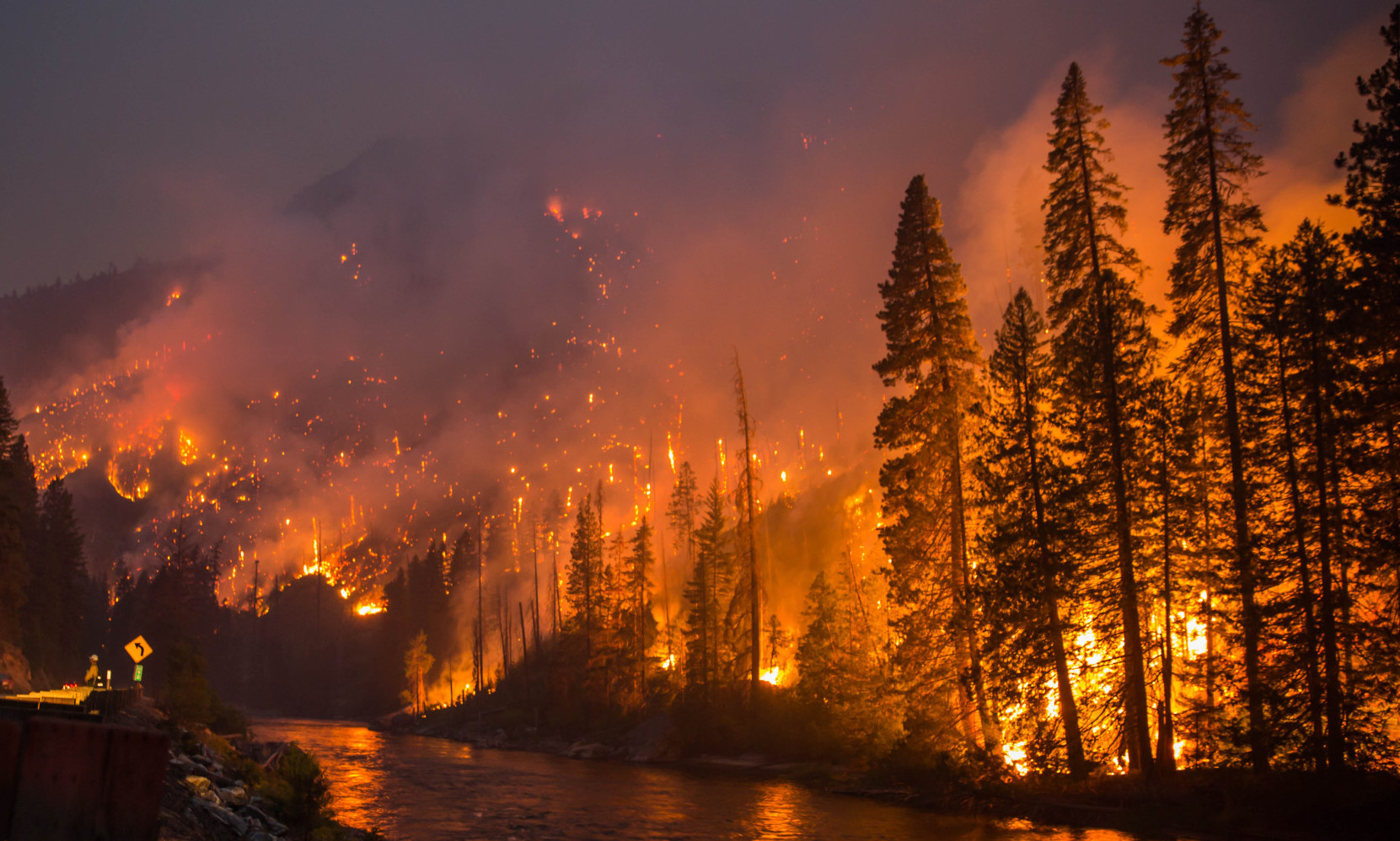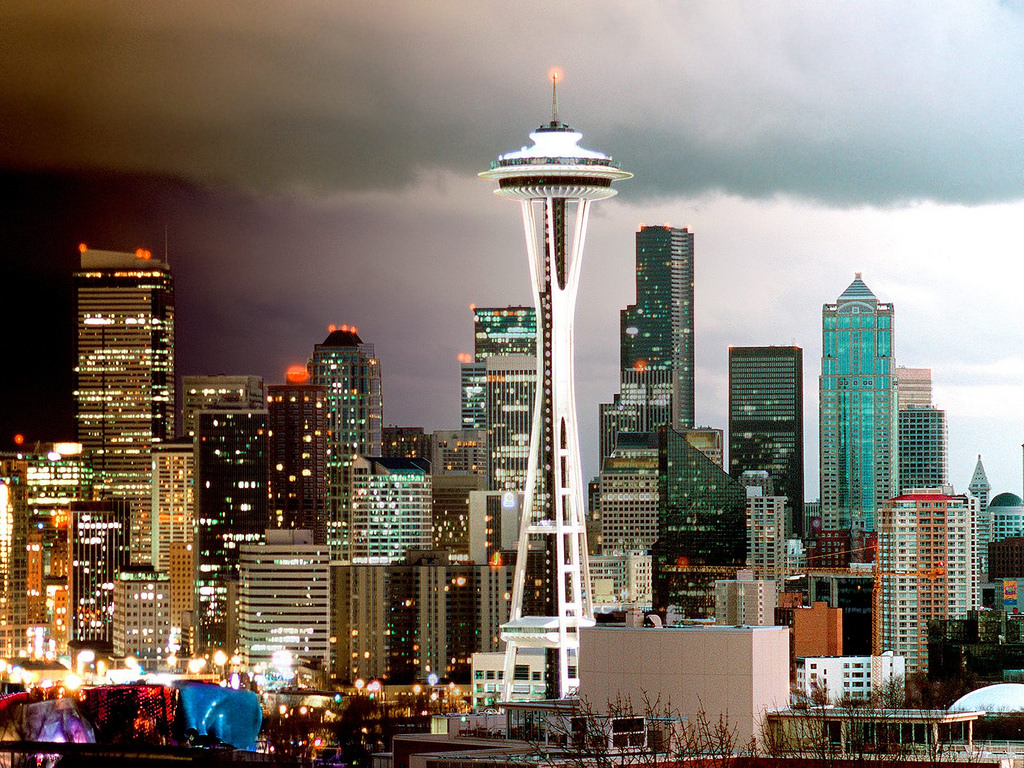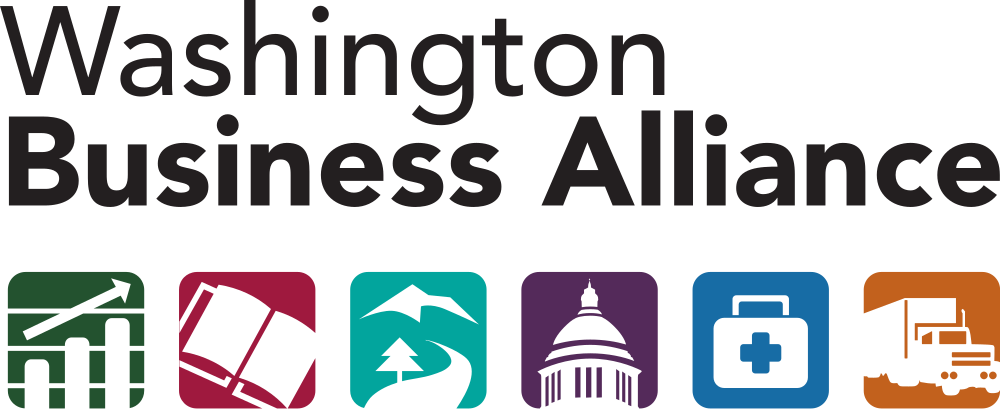What’s next for carbon reduction policy in Washington State? Voters in the 2016 election rejected Initiative 732. The federal Clean Air Rule is being challenged in the courts. The state legislature will convene in January 2017. In this context, leaders from across Washington’s business community met in Seattle on November 16th, 2016 to discuss efforts by governments and businesses to reduce greenhouse gas emissions.
 Present for the discussion were representatives from Alaska Airlines, Boeing, Clallam PUD, Kaiser Aluminum, Masco Petroleum, Microsoft, Seattle City Light, Sellen Construction, Vigor, and Weyerhaeuser among others. Though their viewpoints often diverged, participants all acknowledged the importance of engaging in an earnest conversation about how Washington’s business community can coalesce around a cost-effective and environmentally effective carbon policy.
Present for the discussion were representatives from Alaska Airlines, Boeing, Clallam PUD, Kaiser Aluminum, Masco Petroleum, Microsoft, Seattle City Light, Sellen Construction, Vigor, and Weyerhaeuser among others. Though their viewpoints often diverged, participants all acknowledged the importance of engaging in an earnest conversation about how Washington’s business community can coalesce around a cost-effective and environmentally effective carbon policy.
The State of Public Opinion
Kicking off the event, opinion research firm FM3’s Dave Metz presented the results of a freshly completed poll on the opinions and beliefs of Washington State voters regarding I-732 and climate change more generally. The research was commissioned jointly by The Nature Conservancy and Vulcan Inc. Click here for a detailed summary.
The survey results provide evidence that Washington State voters support action to address climate change. More than 80 percent believe the planet is warming. Over 60 percent understand the science that shows climate change is mainly caused by human activities. And despite the defeat of Initiative 732, the post-election poll shows that more than 2 out of 3 voters want the state to take action to reduce climate change pollution.
A Business Conversation on Carbon Reduction Policy
Following the presentation on opinion research, the program next turned to a panel discussion featuring four local business leaders. Colleen McAleer, President of the Washington Business Alliance, moderated the discussion. She began by framing the conversation around one central question:
“What provisions would you like to see for a state carbon reduction policy, in general and for your industry?”
 Scott Wyatt, Partner & Chairman at , voiced agreement with the concept of a carbon tax but stressed that it “was not a good idea to try to” be revenue neutral in the manner of I-732. He said that revenues from carbon pricing should be put toward “social equity issues,” “incentives for the right behaviors,” and investing in the changes required for individuals and companies to reduce their carbon footprint.
Scott Wyatt, Partner & Chairman at , voiced agreement with the concept of a carbon tax but stressed that it “was not a good idea to try to” be revenue neutral in the manner of I-732. He said that revenues from carbon pricing should be put toward “social equity issues,” “incentives for the right behaviors,” and investing in the changes required for individuals and companies to reduce their carbon footprint.
Chris McCabe, Executive Director at Northwest Pulp & Paper Association, began by stating that “one of the fundamental public policy goals we can all agree on is that regardless of what kind of a carbon reduction program the state ultimately adopts, at a minimum it should not make the problem worse… That means whatever we craft should not create greenhouse gas leakage.” Leakage refers to an increase in greenhouse gas emissions in other geographic areas because of the movement of economic activity from Washington to other states and countries.
Leakage is particularly important for energy-intensive, trade-exposed industries like pulp and paper production. Sharply increasing energy costs could lead to the exit of Washington manufacturing companies and jobs. Given that Washington has the least carbon intensive grid in the US, companies that move out-of-state will be plugging their operations into dirtier power grids which does nothing positive for the environment. McCabe’s argument was that if a new carbon policy creates a competitive disadvantage for industries like his, the net result could be an increase in global emissions.
“I hope that whatever we come up with as a state,” McCabe said, “we are able to have adequate and real protections for energy-intensive trade-exposed industries.”
Stacy Smedley, Director of Sustainability at construction group Skanska USA, said that a successful carbon policy should adhere to three principles. 1) “It needs to be holistic. We can’t just say that transportation is 40% of the problem” and then design a solution that only addresses emission from that sector. 2) “There needs to be reinvestment [of revenues generated from carbon pricing]… in the technologies that will help all businesses decrease their carbon footprint. And, there has to be evidence it’s going to help the economy. Not just in urban areas but also in rural areas of the state.” 3) “Incentives for those who are already doing well. There are companies in our state that are the leaders in their industries when it comes to lowering emissions, and they should be rewarded for that effort and become models and inspiration for others.”
 Patrick Jablonski, Environmental Manager at Nucor Steel, reinforced the points made about the threat of leakage by Chris McCabe of the NW Pulp & Paper Association. Nucor is the only steel mill in the state. “Washington has a relatively small industrial base,” Jablonski noted. “There are many sectors that have only one facility in the state. As a result, the impact of leakage is amplified.” Jablonski noted that because of clean hydroelectric power paired with the low cost of electricity, Washington’s industrial firms operate at the front of the pack in terms of their carbon competitiveness.
Patrick Jablonski, Environmental Manager at Nucor Steel, reinforced the points made about the threat of leakage by Chris McCabe of the NW Pulp & Paper Association. Nucor is the only steel mill in the state. “Washington has a relatively small industrial base,” Jablonski noted. “There are many sectors that have only one facility in the state. As a result, the impact of leakage is amplified.” Jablonski noted that because of clean hydroelectric power paired with the low cost of electricity, Washington’s industrial firms operate at the front of the pack in terms of their carbon competitiveness.
“Anything that causes a competitive disadvantage will shift market share towards more carbon intensive products,” Jablonski cautioned. He noted that Nucor steel competes with China.
Jablonski also introduced the concept of “process emissions.” He said it’s a concept that “deserves attention” in the carbon policy debate. “There are emissions connected to certain industrial activities that are baked into the process they’re essentially unavoidable. If we include those in the scope of our policy then we’re effectively taxing production. This will encourage leakage and only make the problem worse.”
The moderator, McAleer, then introduced another question for the panel to address:
“What do you envision would be the net impact on your business or your climate from emerging carbon policy?”
NW Pulp & Paper Association’s Chris McCabe surmised that “any system that is regulatory in nature and has a cap on carbon emissions on a statewide basis would have an adverse impact on the pulp and paper industry.”
McAleer followed up by asking, “If you could envision a design that alleviated leakage or created a more even playing field, do you see a possibility for the success of pulp and paper in Washington?”
McCabe responded that “there’s a misconception that nothing is going on to reduce greenhouse gas emissions. That’s certainly not the case. The pulp and paper sector in this state reduced greenhouse gas emissions by 300,000 metric tons in the last decade. That’s the same as taking 64,000 cars off the road.” He suggested that there needs to be a “reality check” in regard to all the positive, industry-led action that is already occurring. Industries and individual companies should receive more “credit and recognition” for the action they’ve already taken to reduce their carbon footprints.
NBBJ’s Scott Wyatt predicted that “any policy that has the effect of reducing carbon will be good for [NBBJ], the building industry, and all businesses in the longer term. [NBBJ] is in the business of designing great cities and great places for people to live. And the state that is doing something about carbon is going to be a better and more attractive place to live… First and foremost I’m in the business of solving problems. In a way we all are. There will be challenges we must face as we move from one economy to another.” Wyatt predicted that businesses would benefit from rising to that challenge.
Wyatt also drew a distinction often overlooked in the carbon debate. “We’re really not talking about taxing energy,” he said, “we’re talking about taxing carbon. The quicker we move to an abundant alternative source of energy that is cost competitive, great things will happen.”
Skanska USA’s Stacy Smedley noted the interdependence of different industries within Washington’s business community. “As a construction contractor, we purchase Nucor steel for a lot of our projects. Therefore, if there’s a negative impact on them it’s going to adversely affect our bottom line.” However, Smedley noted that she predicted that the overall impact on business could be positive if the right policy was enacted. She noted that many industries in Washington (such as fisheries and outdoor recreation) depend on the environment being healthy and clean. These industries would benefit greatly from an effective policy to reduce carbon pollution.
Nucor Steel’s Patrick Jablonski echoed the idea expressed by other panelists that any judgement of net impact was largely unknowable until the exact policy was settled upon. However he noted that there was an opportunity for firms like Nucor to have a competitive advantage if a system took into account the relative carbon content of a product on a global scale.
However, if policy development goes wrong and creates a competitive disadvantage, Jablonski warned that the impact could be devastating. “Unfortunately, steel is a commodity market space,” he noted. “It has an elasticity factor of -6. That means that if our price increases by 1%, we are going to lose 6% market share. Since we are an industry leader in low-carbon steel, that change in market share will lead directly to increased global emissions.”
Business Roundtable
After the panel wrapped up, business leaders engaged in a facilitated conversation about the future of climate policy. There was a diversity of opinions expressed. Below is a summary.
What in today’s conversation has resonated with you?
- Importance of minimizing negative impacts on energy-intensive trade-exposed industries.
- There is a lot of support among Washington voters for climate solutions
- Keep an eye out for unintended consequences.
- People like forests and fish.
- Businesses already have a lot of policies to manage. Make it simpler.
- Perfection not required to move forward.
- Protect good jobs.
- Use carrots, not sticks.
- Need to accept there will be some transitional pain for some, the bar cannot be “no pain for any industry.” We must instead target net good for the economy.
- We must address leakage concerns.
- Invest in affected industries and clean tech.
- Carbon is a global issue but we need to take action locally.
- Invest in alternative fuel infrastructure.
- Climate action is warranted but voters do not yet see the proper action.
- Incentivize innovation that results in carbon reductions.
- For energy-intensive trade-exposed industries, introduce embodied carbon reporting for imported goods.
What would good climate policy look like?
- Need incentives for buying low carbon electric fuel.
- Policy should be technology-neutral.
- One policy, not a bunch of pancake policies.
- Consider impacts of all environmental policies and regulations in development of a policy.
- Broad-based tax, reinvested in incentives infrastructure, transition, protecting key industries.
- Reward good behavior.
- Consideration of the broader constellation of environmental regulations and policies.
- Recognize industry efficiency.
- Don’t create economic disadvantage for Washington businesses. They must compete.
- Strong support for climate policy that is effective in its economic transition .
- Policy affects more than just the state. Needs regional if not national consideration.
- Emphasize good jobs that are geographically diverse.
- Includes sequestration / optimizing forest capture.
- Cap & trade that recognizes energy-intensive trade-exposed industries.
- Focus on vision and what we are trying to achieve vs. how we will pay for it.
- Support clean energy is there. Support for taxes and carbon-focused policy is not.
- Show people what they will get.
- Cut through noise in political “off years.”
- Mobilize people frustrated by DC pullback on climate policy.
- Act in 2017 while people are still engaged.
- Include incentives for waste energy.
- Washington already has a set of climate policies and aggressive energy/building codes. This needs to be understood.
- Elevate the importance of building efficiency.
- Policy that is a model for others to embrace, tailor, and implement.
- Policy should not pick winners and losers.
- Transparent decision-making process.
- Incent rapid conversions to cleaners processes & choices.
The moderator, Washington Business Alliance President Colleen McAleer closed out the evening by sharing a thought about her own community in Clallam County. “The median wage in Clallam County is just over $31,000 per year,” she noted. “For us in rural Washington, the crisis we typically think about is not the environment. The crisis is the economy.” Statewide though, McAleer noted, the polling is clear. “You’ve seen the results of opinion research. Washingtonians want to see something happen around carbon emissions. That is the reality. For those businesses that don’t want to deal with it and believe the answer is ‘No.’ I say to them that this is going to happen. Come take a seat at the table and help those involved design a smart solution so that it will be something that benefits you and rural Washington State.”
The event was organized by The Nature Conservancy, Washington Business for Climate Action, and the Washington Business Alliance with sponsorships from Vulcan Inc. and MacDonald-Miller Facility Solutions.
